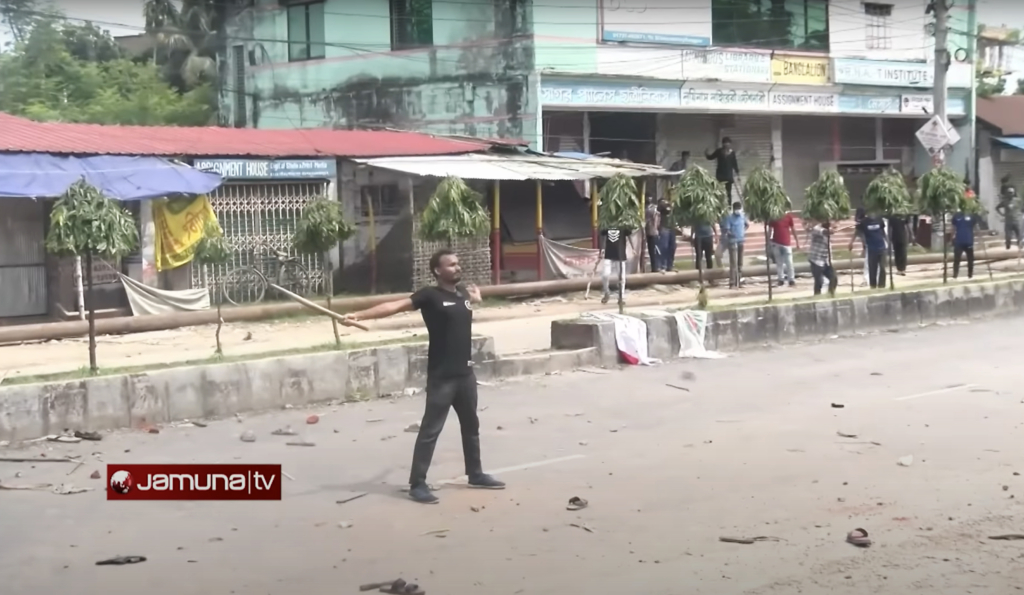What happened at the quota-reform protests in Bangladesh?
What happened to Abu Sayed?
Abu Sayed, a student of English at Rangpur’s Begum Rokeya University, was killed during a student protest when police shot at him with live ammunition.
- He was shot directly in the chest multiple times by the police.
- He posed no physical threat to the officers.
- Despite being unarmed and peaceful, he was brutally killed.
Sayed’s death certificate states he was ‘brought dead’ to the hospital at the age of 25, sparking outrage across Bangladesh.
What happened to the protesters?
The crackdown on student protesters resulted in 32 reported deaths by 18th July, with a peak of 75 deaths on 19th July. The government proposed discussions, but protesters rejected it due to the rising death toll.
- Protesters, journalists, and bystanders were assaulted and killed.
- The government imposed a communication blackout, leaving the country offline for days.
- Security forces were deployed countrywide, resulting in more than 200 deaths in under 10 days.
Why are people protesting?
Students are protesting the reinstatement of a government job quota favoring supporters of the ruling party, demanding justice and accountability for those killed, injured, and arrested.
- Protests erupted in response to the court-mandated reinstatement of a 30% job quota.
- Protesters continue to demand justice and reduced quotas despite crackdowns.
- Supreme Court’s order to reduce the quota to 5% has not stemmed protests.
How are authorities violating human rights during the protests?
Authorities in Bangladesh have been accused of multiple human rights violations during the protests.
- Unlawful use of force, including lethal weapons and tear gas against protesters.
- Arbitrary arrests, detentions, and violence against activists and journalists.
- Internet shutdowns and limitations on freedom of expression.
What is Amnesty doing?
Amnesty International is actively documenting human rights violations in Bangladesh and calling for accountability for the authorities’ actions.
- Unlawful use of lethal weapons and mass arrests are among the documented violations.
- Amnesty International continues to investigate and demand justice for the crimes committed during the protests.
What can you do to help protesters in Bangladesh?
Stand in solidarity with Bangladeshi protesters and demand accountability for the human rights violations committed by authorities.
- Sign petitions and raise awareness about the situation in Bangladesh.
- Support calls for the release of those arbitrarily arrested and for security forces to be held accountable.
- Protect the rights of protesters to peacefully demonstrate without fear of violence.
Join Amnesty International in demanding justice and protection for Bangladeshi protesters and the end of repressive measures by authorities.
Source: www.amnesty.org

